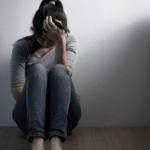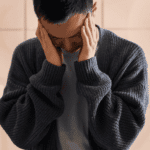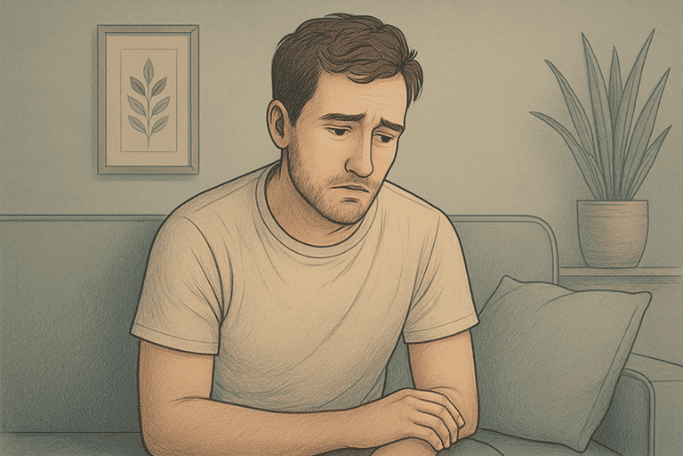
Key Takeaways
- Treatment-resistant depression affects approximately 30% of people diagnosed with major depressive disorder who have tried standard medications.
- A key sign of treatment resistance is failing to respond to at least two different antidepressant medications at adequate doses and durations.
- Persistent functional impairment in work, relationships, and self-care despite treatment efforts indicates possible treatment resistance.
- Working with a psychiatrist who specializes in treatment-resistant depression significantly improves chances of finding effective interventions.
- Mission Connection Healthcare specializes in comprehensive depression treatment using evidence-based therapies including CBT, DBT, and mindfulness techniques, with personalized care plans and convenient online services designed to address complex depression cases requiring individualized approaches.
What Is Treatment-Resistant Depression?
Treatment-resistant depression (TRD) occurs when someone with major depressive disorder doesn’t experience significant symptom improvement despite adequate trials of antidepressant medications. This isn’t simply a matter of depression being difficult to treat; it represents a distinct clinical challenge requiring specialized approaches.
The term can be somewhat misleading, as “resistant” might suggest that the condition is untreatable. In reality, people with TRD can and do get better, but they typically require different or more intensive interventions than those with standard depression.
How Common Is Treatment Resistance?
Treatment-resistant depression is surprisingly common. Research indicates approximately 30% of people diagnosed with major depressive disorder who try medications will experience treatment resistance. This translates to millions of Americans struggling with depression that doesn’t respond adequately to conventional treatments.
These statistics highlight an important reality: if you’re struggling with depression that hasn’t improved with standard treatments, you’re not alone. Many others face similar challenges, and the medical community continues to develop more effective approaches for TRD.
Mission Connection offers flexible outpatient care for adults needing more than weekly therapy. Our in-person and telehealth programs include individual, group, and experiential therapy, along with psychiatric care and medication management.
We treat anxiety, depression, trauma, and bipolar disorder using evidence-based approaches like CBT, DBT, mindfulness, and trauma-focused therapies. Designed to fit into daily life, our services provide consistent support without requiring residential care.
5 Signs of Treatment Resistant Depression
1. Multiple Medications Haven’t Improved Your Symptoms
The clinical definition of treatment-resistant depression typically involves failing to respond to at least two different antidepressant medications from different classes. This doesn’t mean the medications had no effect whatsoever; rather, they didn’t produce the expected 50% or greater reduction in depressive symptoms that would constitute a meaningful clinical response.
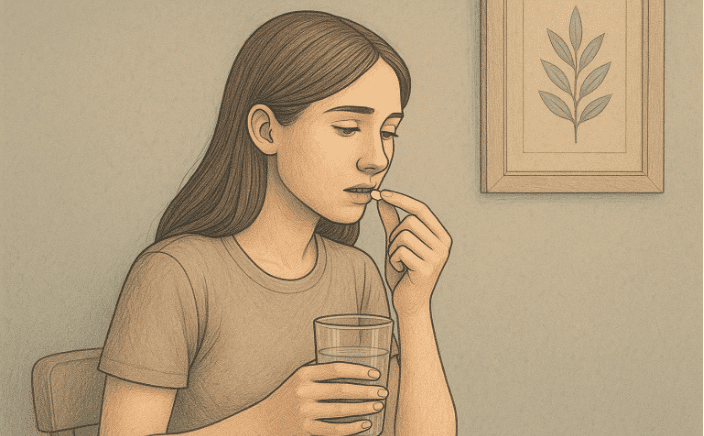
Different antidepressant classes work through varying mechanisms. SSRIs like fluoxetine (Prozac) or sertraline (Zoloft) primarily affect serotonin levels, while SNRIs such as venlafaxine (Effexor) or duloxetine (Cymbalta) target both serotonin and norepinephrine.
Other medications like bupropion (Wellbutrin) work on dopamine and norepinephrine. When multiple medications with different mechanisms fail to provide relief, it suggests your depression may require more specialized treatment approaches.
2. Therapy Hasn’t Made a Significant Difference
While medication resistance is central to the diagnosis of TRD, many people with treatment-resistant depression also find that psychotherapy doesn’t produce the expected benefits.
Evidence-based approaches like Cognitive Behavioral Therapy (CBT), interpersonal therapy, or psychodynamic therapy typically help reduce depressive symptoms, but those with treatment resistance may experience minimal improvement despite committed participation.
This doesn’t mean therapy has no value for those with TRD. Therapy can still provide important coping strategies and emotional support even when it doesn’t resolve the core depression. Additionally, specialized therapy approaches designed specifically for treatment-resistant depression may be more effective than standard protocols.
3. Your Depression Severely Impacts Daily Functioning
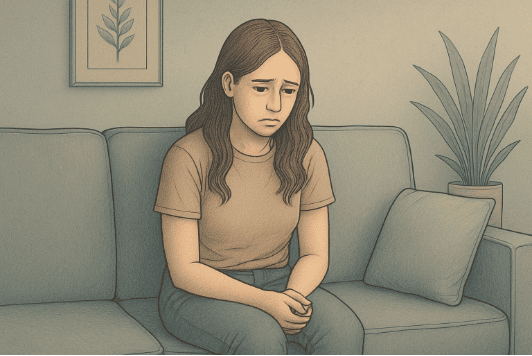
While all depression can affect daily life, TRD tends to create more pervasive and stubborn functional impairments that don’t improve with standard treatments.
This functional impairment often manifests as an inability to maintain employment, difficulties with basic self-care, and withdrawal from meaningful social connections. The severity and persistence of these functional impairments, despite genuine treatment efforts, distinguish TRD from more responsive forms of depression.
Many people with treatment-resistant depression report feeling like they’re merely existing rather than living, going through motions without engagement or joy. This profound impact on quality of life underscores why finding effective treatments is so crucial.
4. Brief Improvements Followed By Relapses
A frustrating pattern common in treatment-resistant depression is experiencing brief periods of improvement followed by rapid returns to depressive states.
You might notice your symptoms improve temporarily when starting a new medication or therapy approach, only to find the benefits fading within days or weeks despite continuing treatment. These cycles of hope and disappointment can be particularly distressing.
This pattern differs from the normal ups and downs everyone experiences. In treatment-resistant depression, the improvements are often shorter-lived, less complete, and followed by returns to significant depressive symptoms rather than normal mood fluctuations.
5. Lifestyle Changes and Holistic Approaches Haven’t Helped
Regular exercise, healthy diet, good sleep hygiene, stress management, and social connection all play important roles in managing depression. For many people with less resistant forms of depression, these lifestyle modifications produce meaningful improvements. But if you’ve consistently implemented these changes without experiencing significant symptom relief, it could indicate treatment resistance.
This doesn’t mean these approaches have no value. They’re still important components of overall mental health care and can support other treatments. However, their limited impact despite consistent effort suggests your depression has stronger biological underpinnings that require more direct neurobiological interventions.
What To Do If You Have Treatment-Resistant Depression
Alternative Treatment Options Worth Considering
Several innovative treatments have shown remarkable effectiveness specifically for treatment-resistant depression. Transcranial Magnetic Stimulation (TMS) uses focused magnetic pulses to stimulate underactive brain regions associated with depression, with response rates of approximately 60% in treatment-resistant patients.
Ketamine therapy, particularly esketamine (Spravato), works through entirely different mechanisms than traditional antidepressants, often providing rapid relief even in highly treatment-resistant cases. Electroconvulsive therapy (ECT), while often misunderstood, remains one of the most effective treatments for severe TRD with modern techniques minimizing side effects.
Medication combinations not typically used for initial depression treatment may also be effective when single medications have failed. These might include adding atypical antipsychotics, thyroid hormone, lithium, or combining antidepressants from different classes. The key is working with a psychiatrist experienced in treating TRD who can safely guide these more complex medication strategies.
The Importance of Specialized Care
Treatment-resistant depression requires specialized expertise. Seeking care from psychiatrists and centers that specifically focus on TRD significantly improves your chances of finding effective treatment.
These specialists have experience with the full range of available interventions and understand the unique challenges of treatment resistance. They’re more likely to be familiar with cutting-edge approaches and can provide more comprehensive evaluation of factors that might be contributing to your treatment resistance.
Finding Hope When Traditional Treatments Fail
Perhaps the most challenging aspect of treatment-resistant depression is maintaining hope through repeated treatment disappointments. However, there’s genuine reason for optimism: new treatments are continuously being developed specifically for TRD, and many people find effective solutions after years of struggling.
Continue your search for effective treatment while being gentle with yourself through the process. Treatment resistance doesn’t mean your depression is untreatable—it means you need different approaches than what you’ve tried so far.
Overcome Treatment-Resistant Depression with Mission Connection Healthcare

At Mission Connection Healthcare, we understand that treatment-resistant depression requires a different approach than standard care. Our comprehensive, holistic treatment philosophy helps foster lasting emotional and mental well-being.
We recognize that each person’s experience with treatment-resistant depression is unique, which is why our licensed mental health professionals develop personalized care plans customized to your specific needs and circumstances.
Our evidence-based therapies, including Transcranial Magnetic Stimulation, Cognitive Behavioral Therapy, Dialectical Behavior Therapy, and mindfulness-based techniques, are delivered through convenient outpatient options and online services that accommodate your schedule. We provide thorough assessments, regular check-ins, skill-building sessions, and ongoing support focused on long-term wellness rather than quick fixes.
Call Today 866-833-1822.
Frequently Asked Questions
What’s the difference between regular depression and treatment-resistant depression?
Treatment-resistant depression occurs when someone doesn’t experience significant improvement despite adequate trials of at least two different antidepressant medications from different classes. While regular depression typically responds to first-line treatments like SSRIs or therapy, TRD requires specialized approaches and alternative interventions.
How do I know if my medication trials were adequate for diagnosing treatment resistance?
Adequate medication trials require therapeutic doses taken for sufficient duration (typically 6–8 weeks each) with consistent adherence. Your psychiatrist will review whether previous medications were from different classes, given at appropriate doses, and taken long enough to determine effectiveness before considering treatment resistance.
Can lifestyle changes alone treat treatment-resistant depression?
While exercise, proper nutrition, and sleep hygiene are important components of mental health care, they typically aren’t sufficient for treating TRD on their own. These lifestyle modifications can support other treatments but usually need to be combined with specialized interventions for meaningful improvement.
What alternative treatments are available for treatment-resistant depression?
Several innovative treatments show effectiveness for TRD, including Transcranial Magnetic Stimulation (TMS), ketamine therapy, electroconvulsive therapy (ECT), and specialized medication combinations. These approaches work through different mechanisms than traditional antidepressants and often provide relief when standard treatments fail.
How can Mission Connection Healthcare help with treatment-resistant depression?
Mission Connection Healthcare offers comprehensive, personalized depression treatment using evidence-based therapies including cognitive-behavioral therapy, dialectical behavior therapy, and mindfulness-based techniques. Their licensed professionals provide thorough assessments, customized treatment plans, and convenient online services with regular check-ins to support long-term wellness and recovery.







